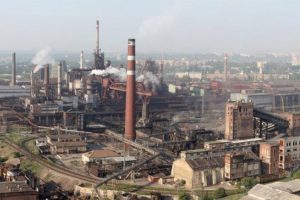
The Verkhovna Rada of Ukraine has approved some fiscal incentives for the development of electric transport in Ukraine, in particular, VAT and import duty exemption from 2021 until 2028 for equipment and spare parts for own production of electric transport (passenger cars, electric buses, electric trucks and special-purpose vehicles).
Bill No. 3476 amending the Tax Code and bill No. 3477 amending the Customs Code were passed at the first reading by 316 and 308 lawmakers respectively.
The proposed exemption will not apply only to equipment for the production of trolleybuses, because their output has already been established in Ukraine.
In addition, bill No. 3476 proposes to exempt the electrical industry companies selling electric motors for the production of electric vehicles (with the exception of trolleybuses), lithium-ion batteries, chargers, as well as automobile companies selling electric cars of their own production from paying income tax until December 31, 2033.
The bill proposes to extend or expand benefits for importers and buyers of electric vehicles.
It is proposed, in particular, to extend the VAT exemption for import and/or supply of electric cars until December 31, 2025 (currently the benefit is valid until the end of 2022).
A buyer of an electric car before December 31, 2030 is also offered to be exempted from paying the mandatory pension insurance fee, be provided with a tax discount on the payment of personal income tax, but these standards are proposed to be introduced from January 1, 2026.
According to an explanatory note to the bills, there is a sufficient industrial potential of Ukraine in the production of electric vehicles. In particular, there are five bus plants, a truck plant, and the facilities, which produce 300,000 passenger cars at three plants.
However, today the government is stimulating the import of electric vehicles, not their production. In particular, from January 1, 2016, there is no import duty, exemption from VAT is extended until 2022 and the excise rate is set at EUR 1 per 1 kW/h of battery capacity.
“The introduction of preferential taxation increased the import of electric vehicles from 1,706 vehicles in 2016 to 7,542 vehicles in 2019, but used electric vehicles are dominating in the market (93% in 2019),” the authors of the bills said.
ELECTRIC VEHICLES, EQUIPMENT, IMPORTED, PARLIAMENT, PRODUCTION

Plans to resume domestic vaccine production are being discussed in Ukraine, Ukrainian Health Minister Maksym Stepanov said in an interview with Radio Liberty.
“You probably know that in Ukraine, apparently back in the 1990s, the production of any vaccine was completely destroyed. Now we have repeatedly talked with the President of the country to start restoring vaccine production. This concerns influenza, this applies to other vaccines, which we use every year,” Stepanov on the air of the Saturday Interview program.
According to the minister, the country has a corresponding scientific potential.
“We have a good school. Of course, this process is not very fast. It will take several years for us to have our own vaccine developed by our scientists. At the same time, I have already held several meetings with our entrepreneurs who have appropriate production lines. Farmak, Lekhim, which have the corresponding certified lines for the production of vaccines,can produce either a Ukrainian vaccine, if it appears, or another,” Stepanov said.

There is no technical capacity in Ukraine to conduct research and development of any vaccines, including against coronavirus, but preparations are underway for mass production, Ukrainian President Volodymyr Zelensky has said.
“From the very beginning of the pandemic, we gathered all specialists. We have brilliant doctors, and this is true. Technically, we could not produce any vaccines, or develop from the point of view of science – there is no medical technical equipment. With all due respect, once again, to our doctors and scientists. There are no questions for them, they are great. But there was nothing at all, there were no laboratories, vaccine production – I will tell you frankly, now there are already several enterprises that are ready for mass production,” he told reporters during a working visit to Mykolaiv region.
Zelensky noted that the Health Ministry of Ukraine has already begun negotiations with the countries that are developing vaccine against coronavirus.
“If we manage to get the vaccine from one country or another, we are ready to produce it on a large scale, helping other countries and, first of all, helping Ukrainians,” the president stressed.
In addition, it is planned to create a research center in Ukraine specializing in the development of vaccines.
“The question is global about science, medicine, the development of vaccines for the future, so this task has already been set. The Ministry of Health and the prime minister are gathering scientists separately, we will create a separate center, gather the best scientists of Ukraine, so that we could be ready for any future challenges. It takes time, but I believe that if we have a desire, we will do the rest,” Zelensky said.

The Infrastructure Ministry of Ukraine says that conditions must be created for active use of e-vehicles in Ukraine and necessary infrastructure must be developed.
“As of the end of July this year, around 23,000 e-vehicles and a bit more hybrid vehicles, which is around 46,000 vehicles, were registered in Ukraine,” the ministry’s press service quoted Infrastructure Minister Vladyslav Krykliy as saying on August 18.
According to the minister, the key to an increase in the number of e-vehicles in Ukraine is making their cost lower and infrastructure development.
“The National Transport Strategy for 2030 provides for the promotion of use of e-vehicles. We are planning to update some of its clauses soon, in particular the ones on the use of public electric transport. However, our key task is to create conditions for the production of e-vehicles in Ukraine,” Krykliy said.
He also said that the ministry supports the extension of VAT exemption for e-vehicle imports to Ukraine. It has also suggested and is actively participating the elaboration of the key amendments to the state building regulations regarding the construction of charging stations on roads.
“We want to change the state building regulations and ensure construction of charging stations on all public roads, and not only national ones,” the minister said.
In addition, the Infrastructure Ministry plans to ensure gradual replacement of public transport with electric vehicles, in particular via raising loans on favorable terms.
According to Krykliy, the government and the Verkhovna Rada should create conditions for active use of e-vehicles in Ukraine and development of necessary infrastructure.
The ministry also recalled that, according to the Interior Ministry of Ukraine, 3,385 e-vehicles were registered in Ukraine in H1, 2020, which is 16% more than over the same period in 2019.

PJSC Dniprovsky Metallurgical Plant (DMZ, former Evraz-DMZ), a member of DCH Steel Group, owned by Oleksandr Yaroslavsky, following the launch of blast furnace and rolling shops No. 1 and No. 2 in June of the current year after maintenance works since October 2019, continues to restore and increase the production.
The company told Interfax-Ukraine that the company produced 17,000 tonnes of rolled steel in July, smelted 22,000 tonnes of steel, 20,000 tonnes of cast iron, while in June there were produced 10,000 tonnes of rolled steel, 13,000 tonnes of steel, and 18,000 tonnes of cast iron.
Previously, the company said that the enterprise is reaching the set technical parameters for the implementation of production plans.
The enterprise said in the press-release that representatives of TÜV SÜD company have carried out recertification audits of the quality management system, environmental management system at the DMZ as well as a thorough inspection of hot-rolled steel production control system for the compliance with international standards.
The auditors interacted with the leaders of subdivisions and employees, visited the workshops, the technical control department, and the central plant lab, requested the necessary documentation for each of the directions.
“The plans have been fully implemented within three days. During the final meeting with the working group, the auditors have confirmed that all systems at the enterprise operate according to the standards. They [auditors] will advise issuing DMZ certificates of conformity to the TÜV SÜD standards. Availability of certificates entitles DMZ to ship its products to foreign customers,” reports the press release.
It was informed at the end of May of the current year that DMZ is ready to launch the blast furnace and rolling mills.
DCH’s investment programme for the development of the DCH Steel mining and metals division (DMZ and Sukha Balka Mine) envisages investments of $300 million over the next five years.
The implementation of investment projects was supported by DMZ specialists who carried out necessary maintenance works and launched the plant.
The plant focuses on the processing of steel, cast iron, rolled steel, and its products.
Since 2016, the investment in environmental programmes amounted to UAH 350 million.

Biopharma pharmaceutical company (Kyiv) has accumulated about 150 liters of plasma from 118 donors who have had coronavirus (COVID-19) for the production of the drug for COVID-19, and the same amount is needed to create an experimental series.
The company informed Interfax-Ukraine that it is necessary to collect 300 liters to create the first experimental series of drugs.
“Not everyone who is diagnosed has developed antibodies, but they are the main weapon against the disease. However, there are cases of asymptomatic course of the disease. That is why everyone who donate plasma in our centers is tested for antibodies to COVID-19,” said the president of the company, Kostiantyn Yefymenko.
He called on Ukrainians, representatives of government, business and public activists to help attract donors who have overcome the coronavirus.
He said that if antibodies are detected, the collected plasma is used to create a drug for coronavirus, if there are no antibodies, then other drugs are made from donated blood.
Biopharma also reports that clinical trials of use of Bioven in the symptomatic treatment of coronavirus are completed. This drug is also produced from donated plasma. In particular, according to the company, during the Bioven research, Ukrainian and international experts noted that it reduces the severity of the cytokine storm and helps stabilize the condition of seriously ill patients.
“The preliminary results of the studies are extremely encouraging: everyone who took Bioven, observe the stabilization of the general condition up to two days after taking the drug, followed by a decrease in manifestations of respiratory failure,” the company reported.
As reported, clinical effectiveness trials of domestic drugs AMIZON MAX (produced by Farmak), Amiksin IC (Interchem), Bioven (Biopharma) and Corvitin (BHFZ) are underway in Ukraine.